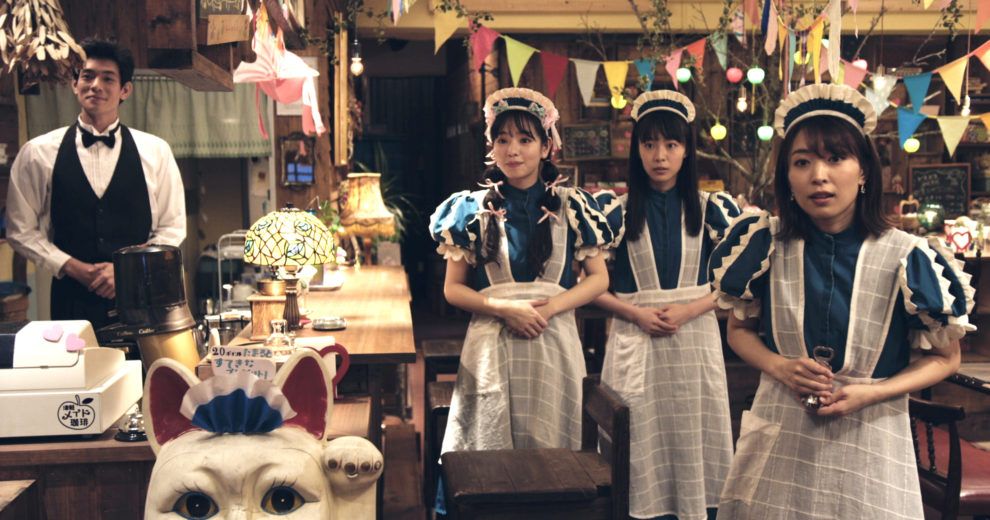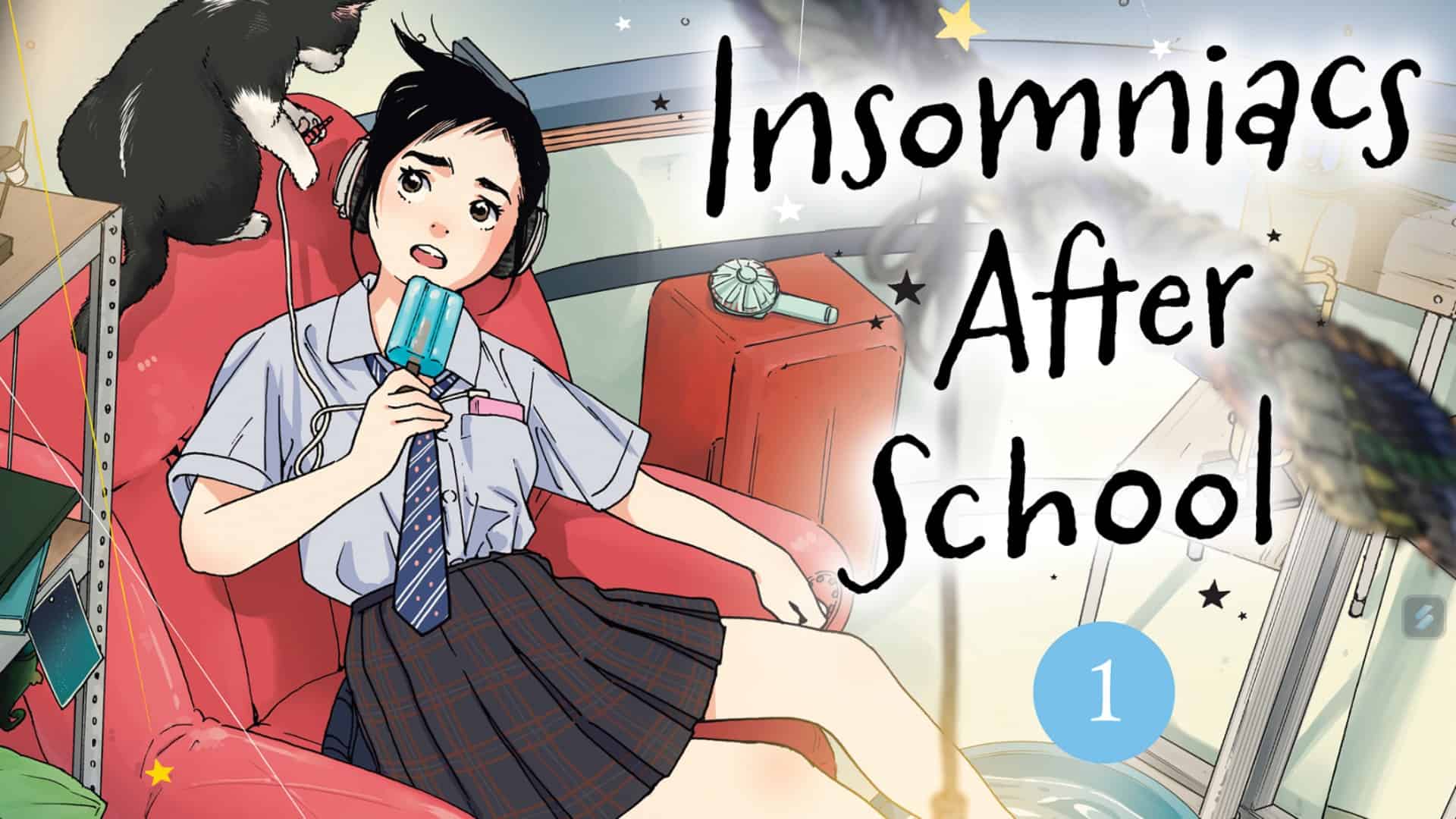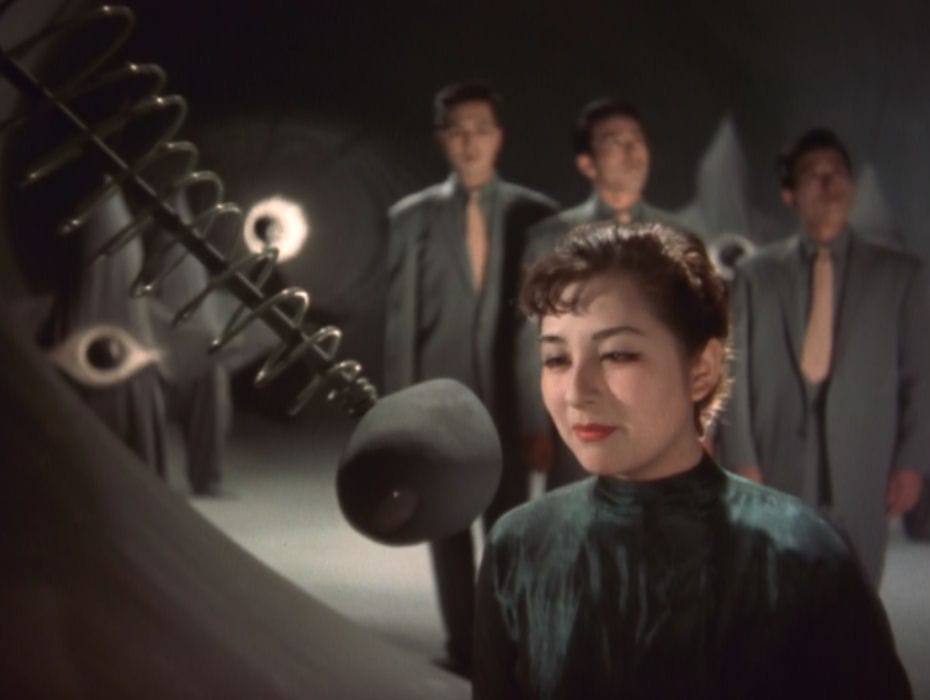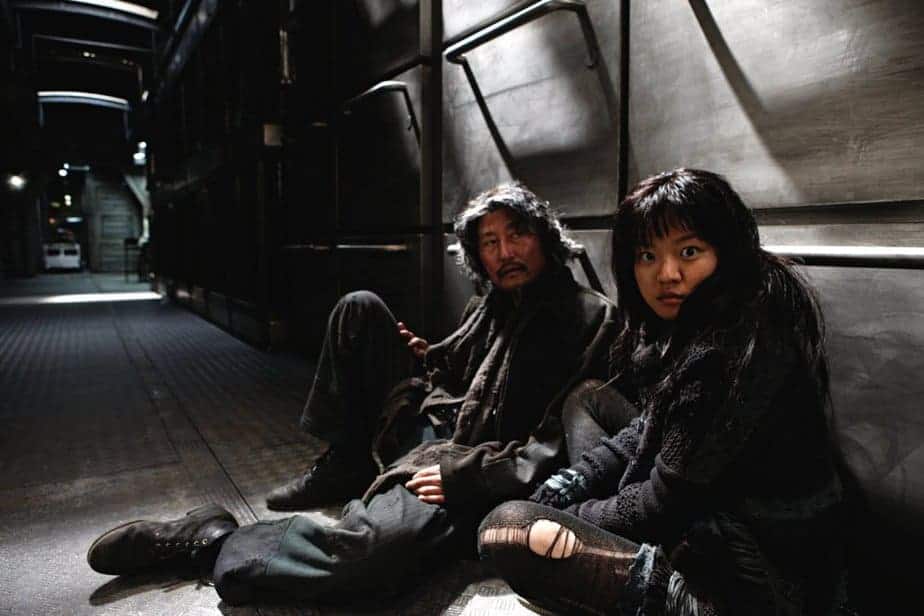“Ito”, presented in the Japan Feel-Good section at the Five Flavours Film Festival (where it was also screened during the festival's closing ceremony), depicts a provincial teenage girl at odds with her surroundings.
Ito is screening at Five Flavours

The eponymous Ito (Ren Komai) has an issue with her father, Koichi (Etsushi Tokoyawa) who is obsessed with history and tradition. The two struggle to formulate any connection. The protagonist's strife changes after she gets a job in a meido kissa cafe, where patrons are being served by female waitresses dressed as maids. Although the place seems to be catering mostly to male fantasies, it ultimately becomes a safe space for Ito. Within the confines of the café she finds her new, chosen family. Ito is raised only by her father, as the mother has passed away when she was young. This lack, as well as a strained relationship with her grandmother, isolate Ito. When meeting new female role models at work, she begins to reformulate her connection to the society and manages to find her own voice (to which the Japanese “Itomichi” title, translating as “Ito's road”, alludes to).
The film is rather straightforward in terms of the direction and camerawork (Katsumi Yanagijima was the cinematographer). The sequences are mostly shot within the domestic environments, and although the editing is on the slightly slower side, it thus allows for more air for comedic elements. It is men, with their old, patriarchal worldviews, who often become butts of the jokes. The director, Satoko Yokohama, clearly uses the setting of the café to mock the old gender dynamics. The naiive coming-of-age setting of “Ito” becomes subverted by the director, and the critique of old customs is very noticeable.
The most poignant sentence in the film comes from Koichi who tells his daughter: “If you want to say something, you have to use your words”, which later becomes juxtaposed by Ito's grandmother's suggestion that the more one speaks, the less one expresses oneself. The latter ultimately becomes a solution to the former. Only after managing to find harmony and inner piece, an expression of Ito's identity becomes possible. Although pretty simple, the central point of “Ito” does not come off as banal. The film's initial naivety turns out to be deceptive. By having Ito work in a kawaii café the director reformulates the overly sweet story, and adds a subversive to it twist. Ito's transformation becomes possible only after she enters the mature world, with all its threats and opportunities. All of this is enabled by the type of work she has to perform. It is in the meido kissa café that other, older waitresses, have to play the roles of high schoolers, ie. the role of being a girl like Ito. After bonding with them and understanding the perspectives of her chosen family, the young girl can move on and heal the remains of her biological family's relationships.
Adapted from the novel by Osamu Koshigaya, the film stands out from many contemporary Japanese productions because it removes itself from a typical urban setting. “Ito” is a coming-of-age narrative which, by engaging with the traditions of Aomori Prefecture, takes an interesting perspective at the tensions between customs and modernity. Ito is primed to follow the footsteps of her grandmother and mother, but in contemporary Japanese society she is able to wrestle the choice about her identity out of the grasp of tradition. All the issues of gender politics and young girls' emancipation do not come to the fore in a direct way, but rather are smartly weaved into the narrative.
















